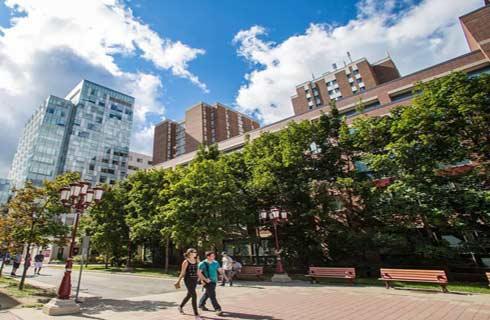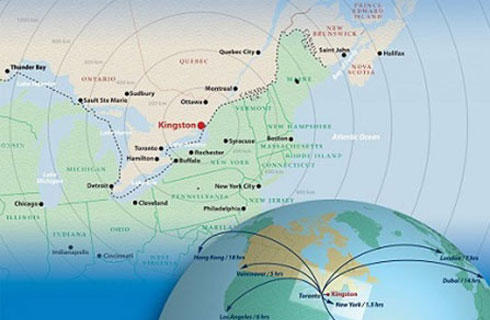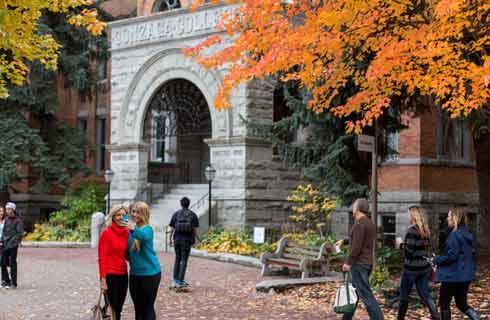土木工程理学硕士
Master of Science in Civil Engineering

学历文凭
Masters Degree

专业院系
College of Engineering

开学时间

课程时长

课程学费

国际学生入学条件
A four-year undergraduate degree, or equivalent, from a recognized college or university in an academic discipline relevant to the proposed field of study, or,
A three-year first cycle undergraduate degree, in an academic discipline relevant to the proposed field of study, from an institution that meets the criteria set forth in the Bologna Declaration, will be acceptable as the equivalent of an undergraduate honours degree.
A cumulative weighted average of at least 70% (USask grade system equivalent) in the last two years of full-time study (e.g. 60 credit units USask equivalent).
Demonstrated ability for independent thought, advanced study, and research.
IDP—雅思考试联合主办方

雅思考试总分
6.5
- 雅思总分:6.5
- 托福网考总分:86
- 托福笔试总分:160
- 其他语言考试:PTE Academic - Overall score of 63 With minimum individual skills scores of Reading 59, Listening 59, Speaking 59, Writing 59
CRICOS代码:
申请截止日期: 请与IDP联系 以获取详细信息。
课程简介
Graduate courses in civil engineering are offered in four broad areas:Transportation include topics on transportation economics, transportation systems, pavement management, geometric design, and traffic engineering.Geological, geotechnical, and geo-environmental engineering include topics on rock mechanics, hydrogeology, petroleum wells and reservoirs, terrain evaluation, physio-chemical properties of soils, frozen soils, unsaturated and swelling soils, volume change and shear strength, slope stability, saturated-unsaturated seepage, contaminant transport, solid waste management, foundation and retaining wall design.Structures and materials science include topics on structural analysis, numerical analysis methods, dynamics of structures, theory of elasticity, advanced composite materials, structural steel design, prestressed concrete and concrete technology.Water resources and environmental engineering include topics such as water quality, advanced water and wastewater treatment, stormwater collection systems, river engineering, erosion and sediment transport, open channel flow, hydraulic structures, climate change adaptation, water resources management, and surface and statistical hydrology.Active research programs are conducted in several majors including: geotechnical; geo-environmental; engineering geology; waste management in the domestic, resource and industrial sectors; environmental; hydrology; hydraulic structures; transportation and transportation economics; structural analysis and design, and civil engineering materials.While conducting research at the University of Saskatchewan, you will have access to state-of-the-art facilities and research centres including:the Saskatchewan Centre of Excellence for Transportation and Infrastructure (SCETI)the Centre for Advanced Numerical SIMulation (CANSIM)
相关申请
 预科
预科 奖学金
奖学金 实习机会
实习机会 在校学习
在校学习 跨境学习
跨境学习 校园授课-线上开始
校园授课-线上开始 在线/远程学习
在线/远程学习
开学时间&学费
学费信息仅供参考,请与IDP联系以获取详细信息
| 开学时间 | 时长 | 学费 | 地点 |
|---|
学校排名

世界排名401
数据源:
泰晤士高等教育世界大学排名
关于萨斯喀彻温大学
本校相关课程
其他相关课程

Bachelor of Science in Civil Engineering
 伦斯勒理工学院
伦斯勒理工学院泰晤士高等教育世界大学排名:554
学历文凭
Bachelor Degree
开学日期
课程费用总额


Bachelor of Science in Civil Engineering
 中佛罗里达大学-Shorelight
中佛罗里达大学-Shorelight学历文凭
Bachelor Degree
开学日期
课程费用总额


土木工程学士学位
 圣地亚哥州立大学
圣地亚哥州立大学泰晤士高等教育世界大学排名:1107
学历文凭
Bachelor Degree
开学日期
课程费用总额


Master of Science in Civil Engineering
 爱荷华州立大学
爱荷华州立大学泰晤士高等教育世界大学排名:431
学历文凭
Masters Degree
开学日期
课程费用总额


Doctor of Philosophy in Civil Engineering
 湖首大学
湖首大学泰晤士高等教育世界大学排名:1080
学历文凭
Ph.D.
开学日期
课程费用总额


土木工程理学硕士
 密西西比州立大学
密西西比州立大学泰晤士高等教育世界大学排名:684
学历文凭
Masters Degree
开学日期
课程费用总额

















